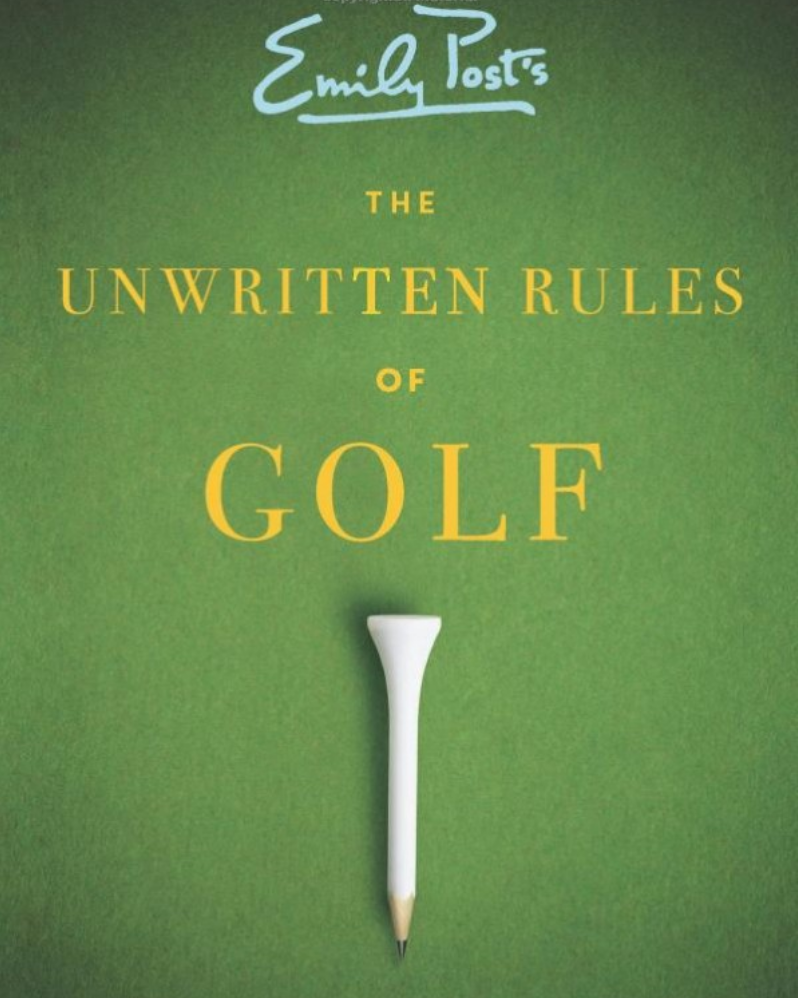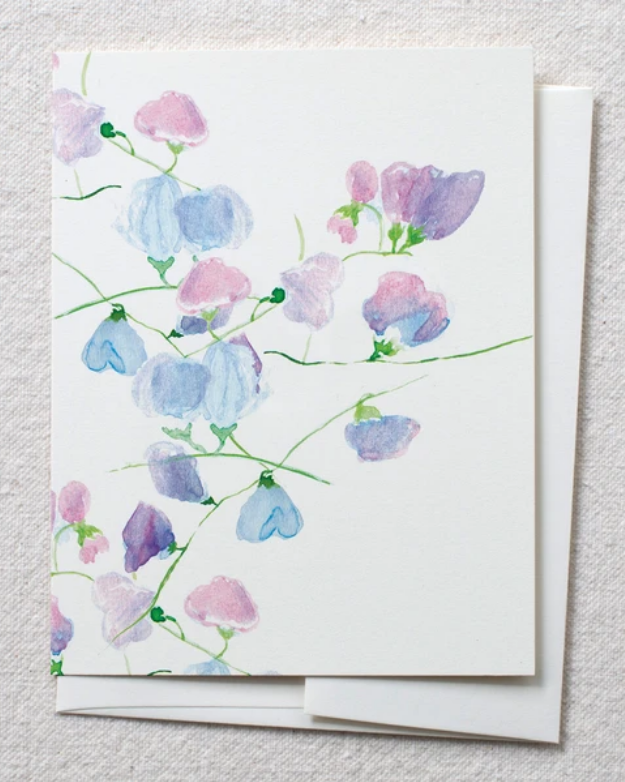
Golf Manners that Matter

Here are some of our best golf etiquette tips written by Peter Post
Whether you play once a year, once a week or whenever you can, minding your manners on the course and in the clubhouse can make a big difference to a smooth round and a good time had by all. From some of the obvious but important manners that take care of the course so that everyone can enjoy the round, like repairing ball marks on the green and divots on the fairway to rules that are more subtle, like not walking on someone's line or making noise when a player is about to strike the ball. Brushing up on your golf etiquette can be an asset whether you're out with your regular foursome, or playing a round with a prospective new client. Here are some of my top golf etiquette tips:
Show Up On Time
It is really important to get the course well before you tee time. Showing up early for golf is always a good move. Whether or not you practice is up to you, but a few minutes before your tee time you should be either at or walking/driving the cart over to the first tee (or the tenth if you've been instructed to tee off from the tenth tee). Always text or call if you're going to be late. The course will determine whether or not to hold your group (if there is one) or to send another group off ahead of you. Remember to apologize and say thank you to the staff who help you, and to your group whether you know them or not.
Joining Up
Joining up with players you may not have met, or weren't planning on playing with is common. It can be a great way to get to know more people at your course, improve your game, and enjoy some spontaneous company. It can also be frustrating when you get paired up with folks you aren't fond of, people who don't have the best golf etiquette or the player who thinks they are your personal coach. When you don't have a full foursome to play with you might be paired up by the club with someone else, or someone may choose to jump into a spot on your tee time. While it's okay to decline if someone asks you directly to join your tee time and you'd rather not, ("Boy I was really hoping for a solo round, maybe another time?" or "Do you mind if Kelsey and I head out on our own? We were hoping for some mother-daughter time.") If someone joins through the sign up system, and you do not want to play with them, you need to cancel your time and sign up for a different one. At some clubs this isn't a big issue because many tee times are open, but at other clubs and courses tee times can be very hard to come by and this can be a more difficult decision. Know where it is you're playing and be as accommodating as possible.
Compliments, Sincere and Otherwise
Sincere compliments are great, and your opponent or your playing partner is sure to appreciate them. But save the accolades for when you really mean it. If, after every shot, you say, "What a great shot!" it's going to get old quickly—as is your credibility.
Keeping Track of Your Ball
Mixing up your ball with someone else's is an egregious error that's irritating in the most casual of circumstances, and can be costly in a tournament or if money is on the line. At the start of each round, take the time to mark your ball with an indelible marker. That way, when you're looking for your ball in the rough or the bushes or the trees, you can identify it as being absolutely your ball. Even on the fairway, it's a good idea to check the ball visually to be sure it's yours before hitting it.
In tournaments, playing the wrong ball will get you into hot water fast. In match play, you lose the hole. In stroke play, you incur a two-stroke penalty; in addition, you must either go back and play your correct ball, or proceed under the rules for a lost ball or a ball in a hazard. If you fail to take one of these actions and tee off on the next hole, you will be disqualified from the event.

Keeping Pace
Golf is a game that requires patience and focus which often take time. However golf is also a game where keeping pace is important. The average time a round should take will be posted in the pro shop and often even on the score card (sometimes it's even posted on certain holes around the course). While talking, joking around and even serious play can all extend the average round. It's inconsiderate to others playing to take too long. If you find you have fallen behind the pace of play it's time to start implementing some speed tactics: Take one practice swing instead of three. Quietly and discretely line up your shot, or contemplate what club to use while other players are taking their shots not once they are finished and it's your turn. Be strategic about where you place the cart or your bag especially when putting so that you can exit the area as quickly as possible. Most of all, be smart about your conversation, waiting for someone to finish a point or story can take up more time than a couple extra practice swings. Need to encourage someone else in your party? Try this tactic: "Looks like we're behind our pace of play, let's try to pick up the pace over the next few holes." Saying this rather than "The guys behind us are waiting..." (true as it may be) can help move play along without adding the pressure of the idea that others are waiting - which can tank someone's golf game and make things worse.
Correctly Marking a Ball on the Green
You're allowed to pick up your ball when it's on the green, but first you must mark it's location. When marking your ball on the green, be careful how you go about it. What's the right way to mark a ball? Place your marker directly behind the ball, not in front of or to the side of it.
Wait Up!
In golf, order of play matters. On each hole, the person with the lowest score on the previous hole "has the honor" and hits first off the tee, the second-lowest score goes next, and so on. In a tie, whoever got the lowest score on the hole before the previous hole goes first, and so on, going all the way back to the order of play on the first hole, if necessary.
Often this approach means that the high handicapper tees off last. The frustration for the high handicapper occurs as he finishes his drive. Often, the rest of the foursome already has their bags at ready, and as soon as the last shot flies from the tee, off they go down the fairway, while the last player hurries to catch up. I've always thought that one of the best parts of golf is enjoying a pleasant conversation as you walk down the fairway. That's not possible if you're always eating your companions' dust. So a word to all you low handicappers out there: Don't be
quick to push off down the fairway. Your higher-scoring buddies will thank you for it.

Letting Other Golfers Play Through
Before letting any group play through, I'll look ahead: Are we playing immediately behind one or more four-person groups ourselves? If we are, then letting the smaller group play through us isn't going to help them. In this situation, we'll wait until we're on the tee and they're on the green of the hole behind us, and then get their attention and explain the situation. Typically, they'll appreciate our concern and slow down a bit so that they aren't right on our tails the whole time.
If, on the other hand, we have open space in front of us, then we'll invite them through regardless of whether the group is a single, a twosome, a threesome, or a foursome. Sometimes they'll jump at the offer, sometimes they won't. Communication coupled with a dose of consideration is key. Besides, what goes around comes around. Who knows? Next week, I may be the single, and the person I just let through may be in the foursome ahead of me, and the favor will be returned.
Always Say Thank You
Always say thank you to the other players in your round once you're finished. Whether you're closing out nine as they play a full eighteen, or you're all going to meet up at the nineteenth hole (the clubhouse bar), saying "thank you" and "good round" (or "tough round" as the case may be) ending a round with this type of recognition is good golf etiquette. Remember at the end of the day it's a game. A great game, but a game, it's the people who matter most.
For more golf etiquette tips including course attire, betting on rounds and tournaments and events please consider purchasing a copy of The Unwritten Rules of Golf, by Peter Post.










